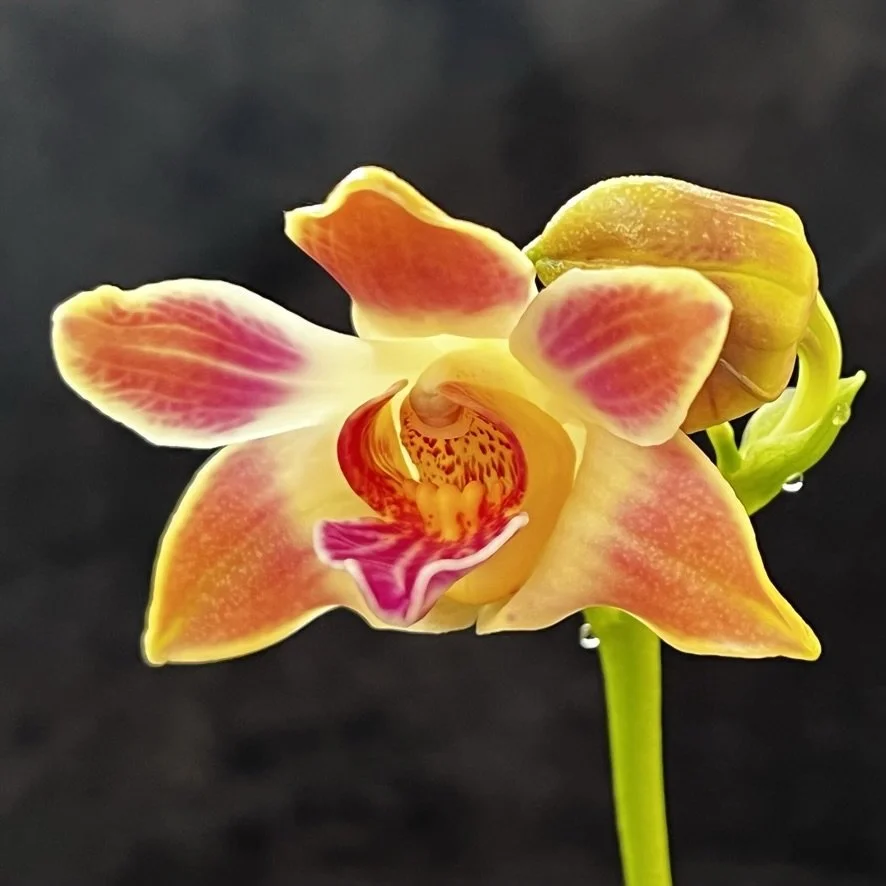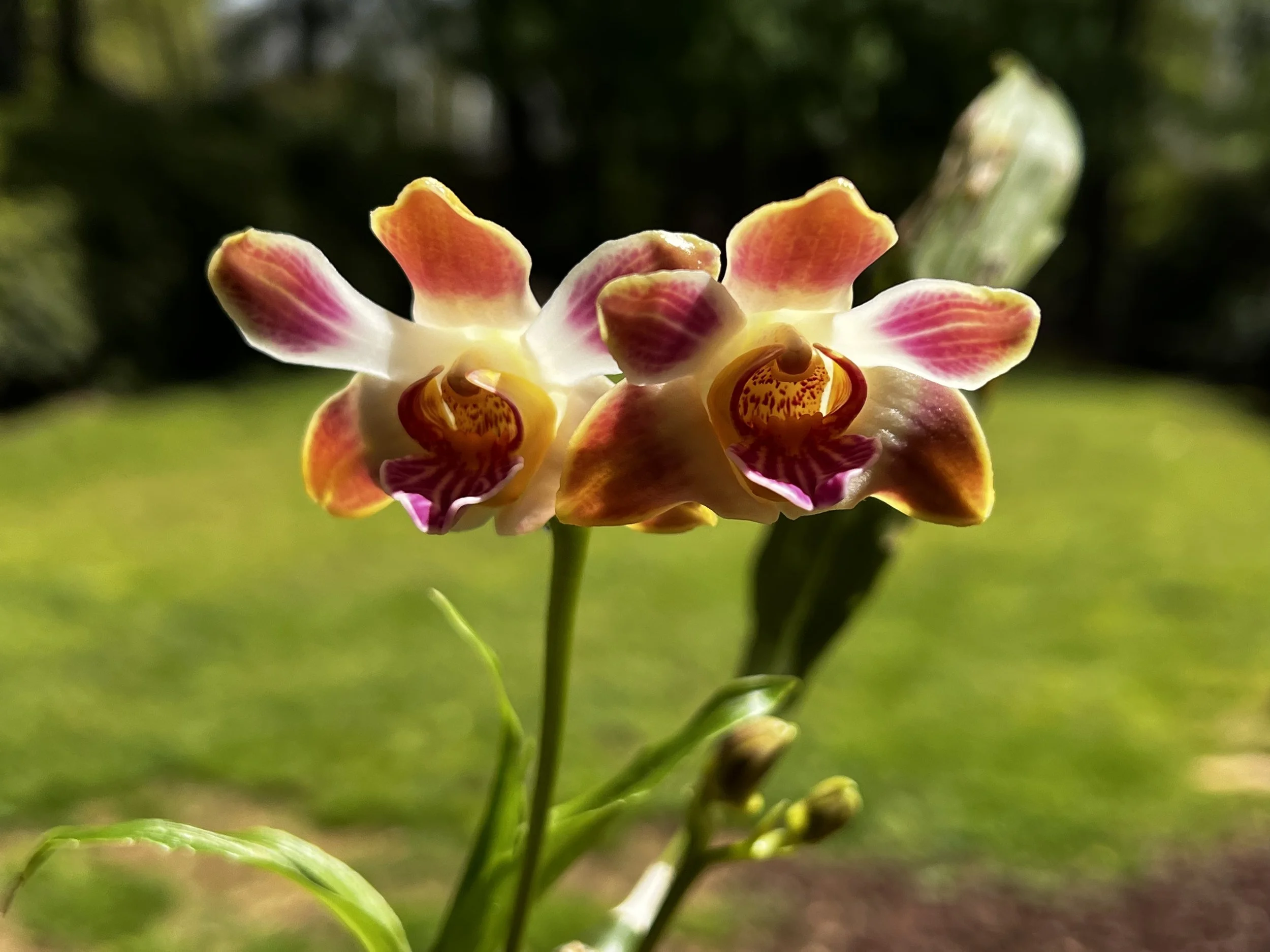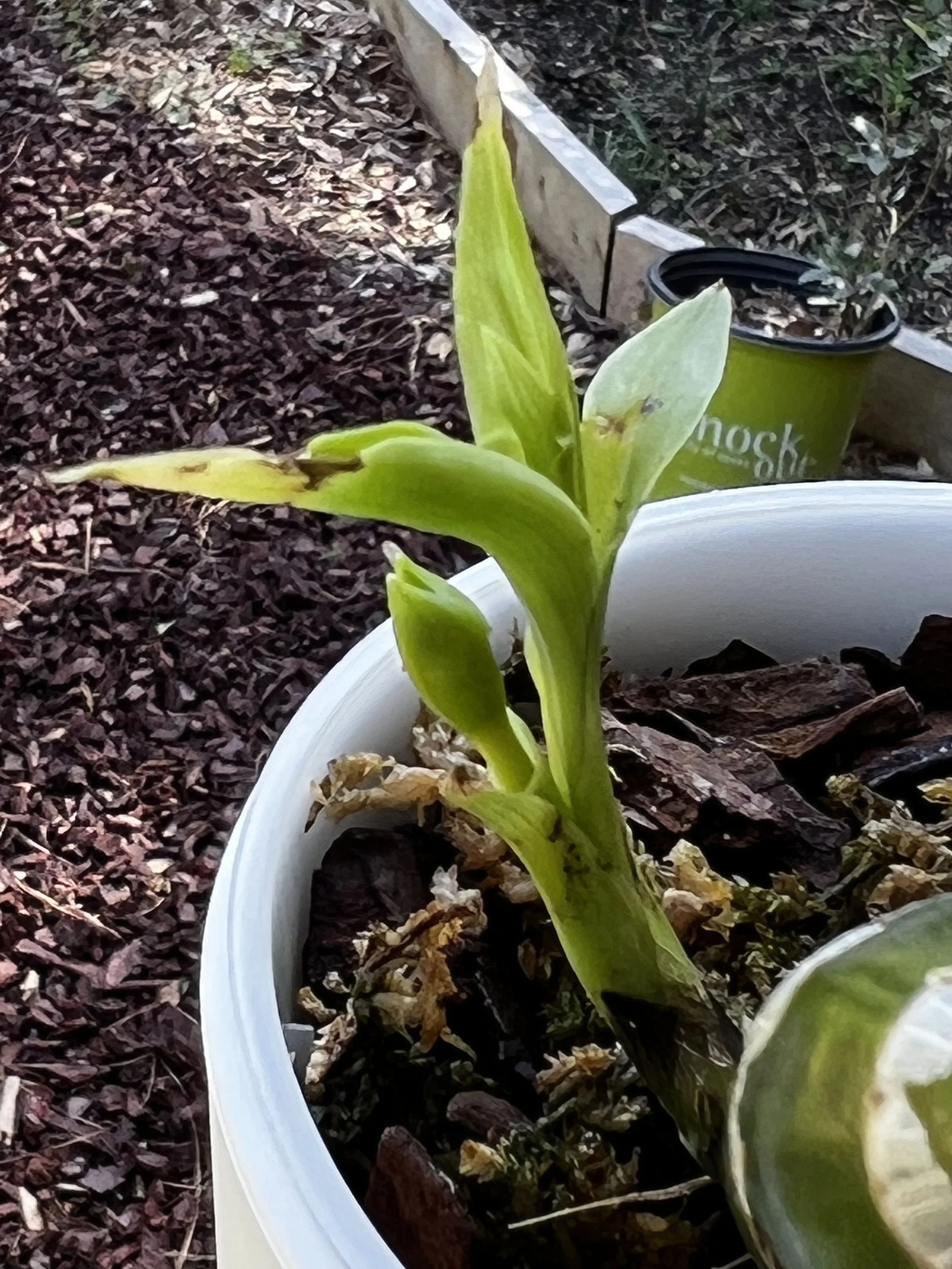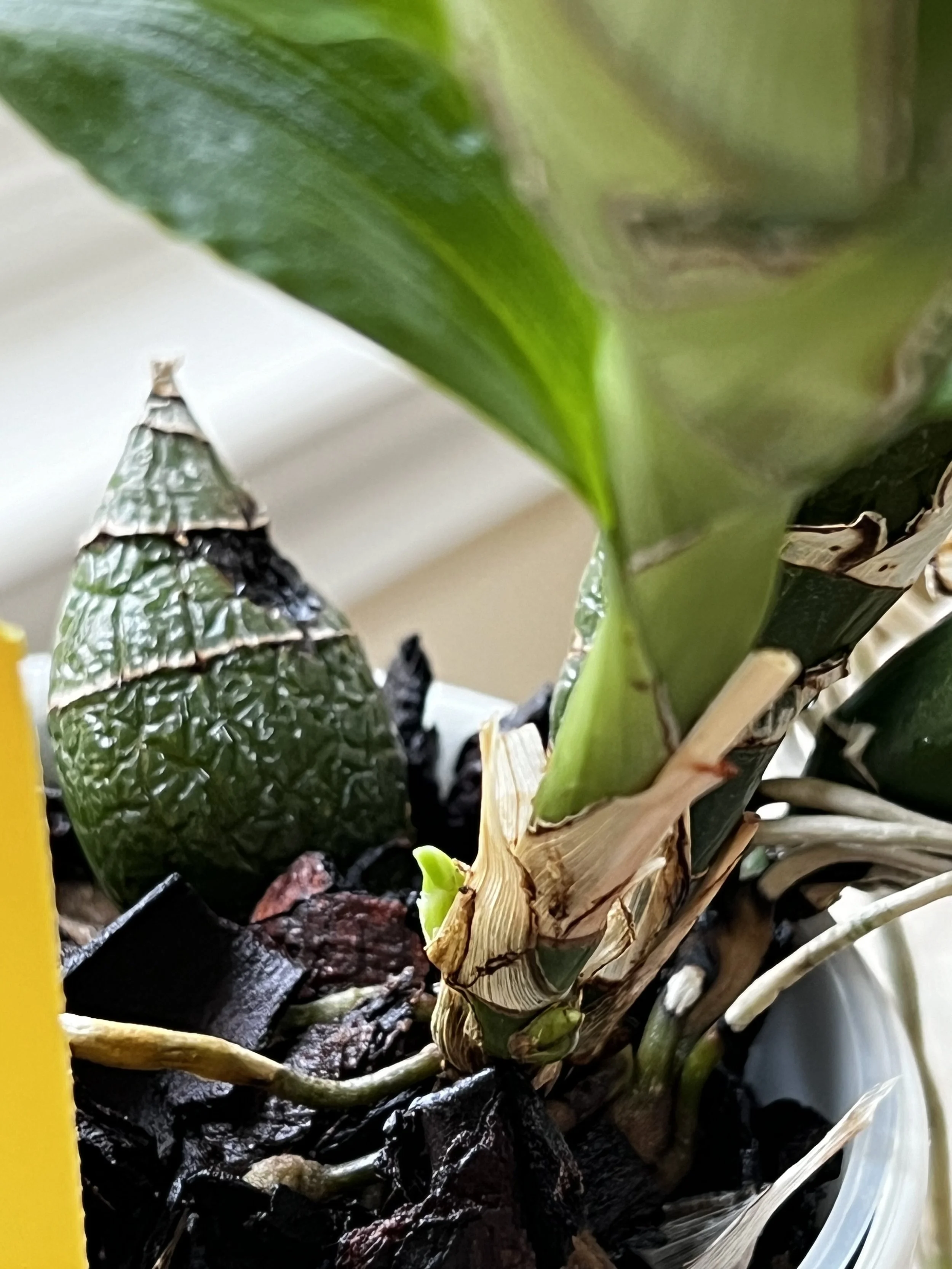Chysis limminghei
Chysis aurea v. limminghei
(species)
This is by far my most photogenic orchid, and that’s saying something! These are supposed to be fragrant, and mine is, but it’s a fairly non-descript aroma and not sweet at all. It doesn’t seem to care where it grows. This year I don’t think I gave it enough water and ferlizer because its bulbs are smaller than last year’s.
Growing Pattern
My Chysis blooms every spring, around February or March. It appears to grow more quickly than some of my orchids. From first bud to flower it’s around 3 or 4 weeks. It has produced two new spikes, followed by bulbs, not the same as most orchids, which typically grow bulbs to maturity before they bloom. The spikes have had two or three blooms each.
History and Features
The Chysis limminghei is a fascinating species orchid native to Central America, bearing clusters of waxy, fragrant flowers that can display varying color patterns from cream to yellow, often adorned with rich burgundy or purple markings on the lip. These aromatic blooms emerge from chunky pseudobulbs in spring, with each flower measuring up to three inches across.
Culture
Temperature
Intermediate to warm growing, although my sunroom is in the mid-60s in the winter and it doesn’t seem to care.
Requires distinct temperature variatio
Needs cooler winter rest period
Light
Bright indirect light
Some direct morning sun beneficial
Protect from hot midday sun
More light during growing season
Reduce light during rest period
Leaves should be light green
Water
Distinct wet/dry seasonal cycle
Growing Season (Spring-Fall)
Keep consistently moist
Water thoroughly when approaching dryness
Rest Period (Winter)
Reduce watering significantly
Allow to dry between waterings
Don't let pseudobulbs shrivel
Potting and Media
Well-draining mix, like all orchids
Mine doesn’t seem to care. I’ve had it in sphanum mix and now it’s in a bark, perlite, moss mix.
Can be mounted but harder to maintain moisture
Hanging baskets work well for pendant growth
Repot when new growth begins. These aren’t crazy about repotting, so do it when roots are in active growth.
Additional Notes
Deciduous - loses leaves in winter
Blooms from new growth in spring
Heavy feeder during growing season
Stop fertilizing when growth slows
Flowers from new pseudobulbs
Pendant to semi-pendant growth habit







